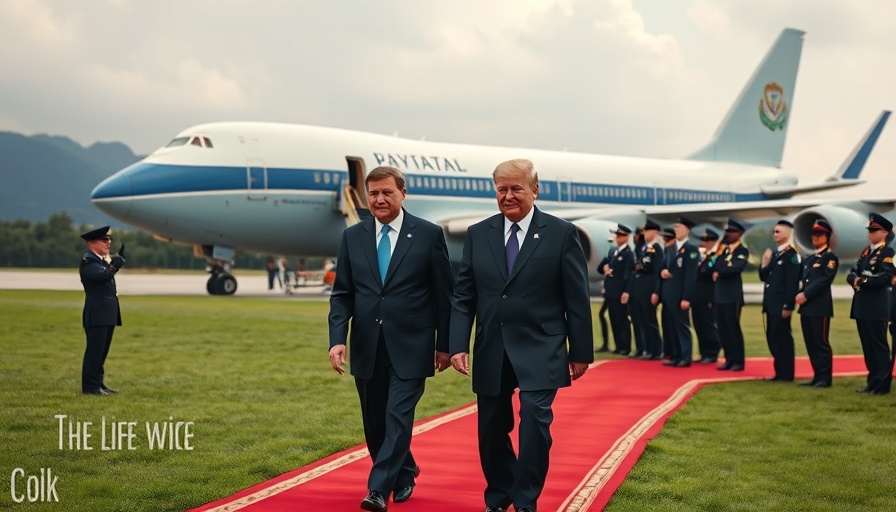
Paramount's Controversial Settlement with Trump
In a striking development, Paramount has decided to settle a lawsuit with former President Donald Trump, agreeing to pay him $16 million regarding the editing of an interview that aired on CBS's "60 Minutes." This decision has stirred discussions about the influence of high-profile figures over the media landscape, revealing the power dynamics at play in contemporary journalism.
Understanding the Background of the Lawsuit
Last year, Trump filed a $10 billion lawsuit against Paramount, claiming that "60 Minutes" intentionally edited an interview with then Vice President Kamala Harris to mislead viewers and interfere with the electoral process. Many in the legal community viewed the lawsuit as an overreach, pointing out that CBS did not present any blatant inaccuracies. However, Trump's legal threats loomed large over the media giant, prompting discussions of a potential settlement sooner rather than later.
Why Settle? The Financial and Political Implications
The decision to settle raises questions about the power of political figures in shaping media narratives. Paramount's leadership, including Shari Redstone, reportedly saw the lawsuit as a significant obstacle in completing a multibillion-dollar sale of the company to Skydance Media, pending approval from the Trump administration. Legal costs and potential reputational damage may have precipitated the swift settlement, leading to a payout that includes Trump's legal fees and contributions to his presidential library. This move speaks volumes about how corporate interests often compel media organizations to navigate carefully around powerful individuals.
Reactions from Legal Experts
Legal experts are divided on the implications of this settlement. While some argue that it sets a troubling precedent for political interference in media reporting, others contend that the First Amendment rights protect the media's discretion in shaping narratives. Many had anticipated CBS would have triumphed in court; however, the settlement underscores how financial pressures and political considerations often outweigh constitutional principles in high-stakes situations.
The Future of Media and Political Relations
As we navigate through the complexities of this settlement, it is essential to consider its broader implications on media integrity. The willingness of major media organizations to settle with politically influential individuals poses risks to journalistic credibility. Future interviews and their presentations may undergo scrutiny, leading to a culture of self-censorship that could inhibit robust journalism.
What This Means for Everyday Consumers and Public Perception
For consumers and followers of the news, this situation raises critical questions regarding the reliability of media coverage and the potential for bias arising from financial settlements. As we prioritize transparency in news reporting, awareness of these dynamics becomes vital in fostering informed public discourse. With individuals like Trump wielding significant influence over media narratives, understanding the implications of such settlements can empower consumers of news to critically evaluate the information presented to them.
A Path Forward for Journalists
Journalists now face the challenge of upholding integrity while navigating industry pressures. As the lines between media and politics blur, maintaining fair reporting practices is essential. Future discussions must emphasize the need for media outlets to develop robust guidelines that protect journalistic independence and resist succumbing to external influences.
This settlement is a poignant reminder of the complexities embedded within the media landscape, inviting all stakeholders—consumers, journalists, and executives alike—to engage in conversations about the future of free and fair reporting.
For those interested in understanding the evolving dynamics of politics and media, following current events and developments is crucial. Stay informed by subscribing to trusted news sources that prioritize integrity and transparency.
 Add Row
Add Row  Add
Add 




Write A Comment